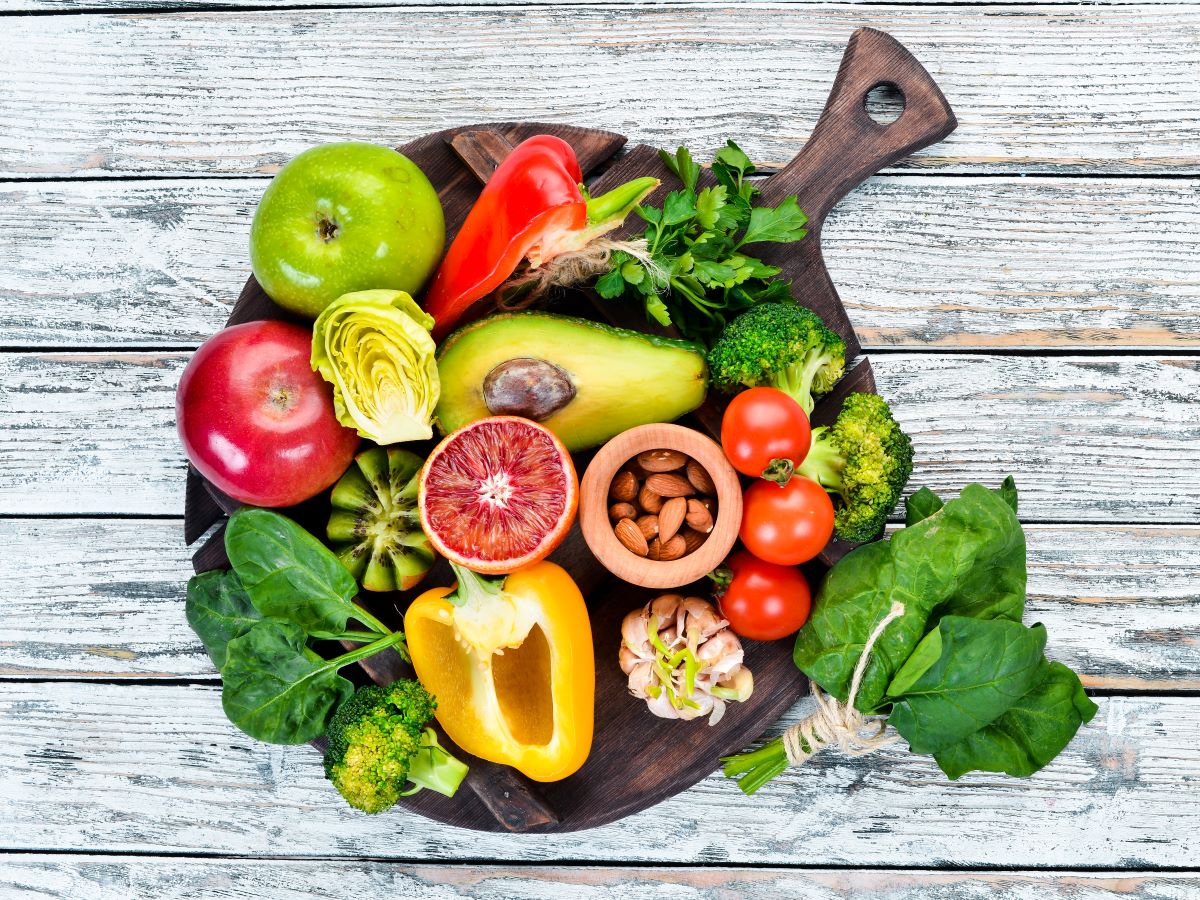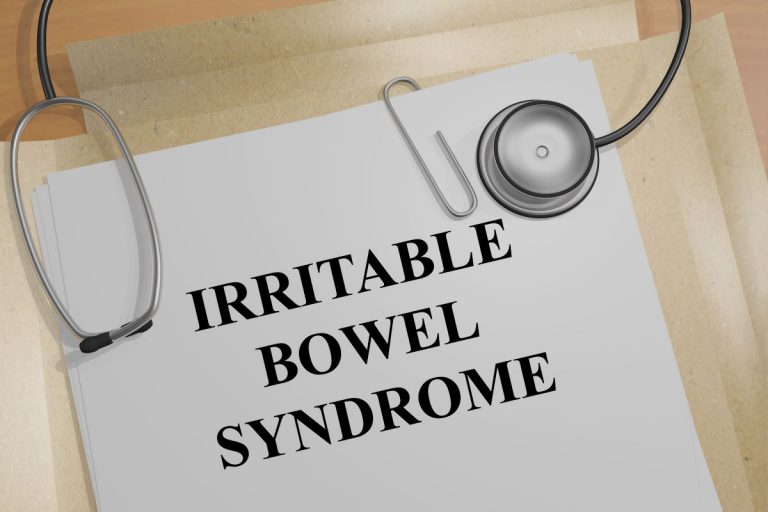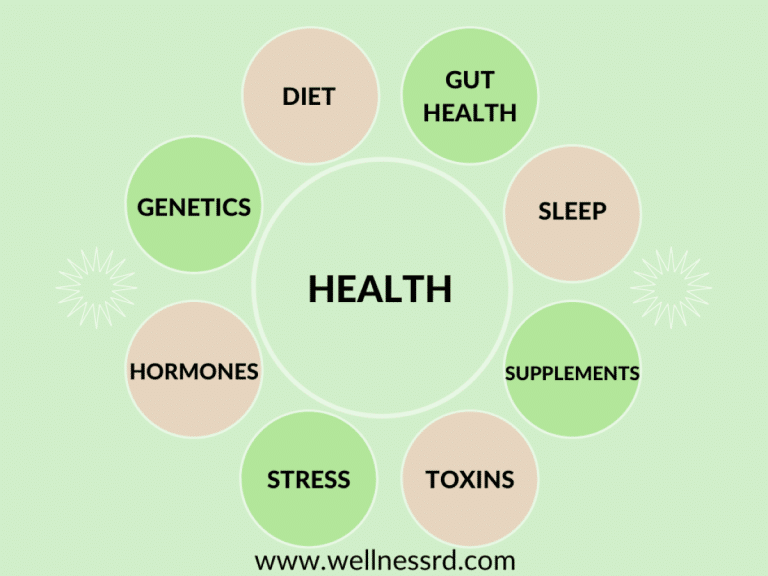Natural Alternatives to MiraLAX: Do They Work?
Are you looking for natural alternatives for chronic constipation?
Wonder if natural alternatives to MiraLAX work to relieve symptoms?
We get it! There are many natural remedies for chronic constipation on the market.
What foods should you eat, and which foods should you avoid with constipation?
What supplements may be natural alternatives to relieve symptoms?
This article contains science-backed natural alternatives to MiraLAX for chronic constipation to guide you to start feeling better.
This information is for educational purposes only. As with any medical advice, always check with your doctor or healthcare professional for personal and age-appropriate recommendations.
Let’s get started.
Want a copy of this article? Click here to download a copy of this article.
Table of Contents
What is Chronic Constipation?
It is estimated that about 15-20% of the population worldwide has chronic constipation (1). Chronic constipation is defined as:
- Less than 3 bowel movements per week
- Difficult to pass stools
- Straining
- Incomplete evacuation
The Bristol scale can be used to describe the stool.
- Type 1: Separate, hard lumps
- Type 2: Sausage like but lumpy
- Type 3: Like a sausage but with cracks in the surface
- Type 4: A soft sausage or snake that is smooth
- Type 5: Soft blobs with clear cut edges
- Type 6: Mushy stools with ragged edges
- Type 7: Liquid, watery, no solid pieces
Types 1 and 2 show constipation.
Contributors to chronic constipation are multifactorial and may be due to medical factors, transit time, genetics, lifestyle, nutrition, psychological, and many other situations (2).
How Does MiraLAX Work with Chronic Constipation?
MiraLAX is an osmotic laxative meaning it pulls liquid into your stool making it easier to pass. According to the MiraLAX website, this product is meant to be used on a short-term basis no more than 7 days without consulting a doctor.
Having osmotic diarrhea with use of laxatives may lead to an imbalance of gut bacteria, dehydration, and poor gut health (3). A study in 2022 concluded that early use of laxatives increased the risk of allergic disease development (4).
What Causes Chronic Constipation?
There are many potential causes of chronic constipation such as medical conditions, medications, food intolerances and sensitivities, hydration status, and lack of exercise. Finding the root cause of constipation can guide you to relieve symptoms.
Medical Conditions
Some medical conditions which may contribute to the risk of constipation include (5):
- Blockage of the intestines
- Hormonal imbalance like hypothyroidism
- Psychological and neurological conditions
- Imbalance of gut bacteria
- SIBO
- IBS
- Metabolic disorders
- Low stomach acid
- Reduced digestive enzymes
- Celiac disease
Certain Medications
Many medications may slow down motility such as antidepressants, antiepileptic, antipsychotics, and even iron and calcium supplements.
Foods That May Contribute to Constipation
Some nutritional considerations contributing to constipation include food sensitivities or intolerances.
Food sensitivities and intolerances may lead to constipation. A food sensitivity test like the MRT is helpful if identifying reactive foods.
Dairy products and gluten tend to be common contributors to constipation (6).
About 1% of the population has celiac disease yet about 95% of people are still undiagnosed (7). Prior to removal of gluten, a celiac test should be performed as once gluten is removed, the test may show a false negative.
Hydration Status
Dehydration either with fluid loss or fluid restriction can lead to constipation (8). A general guideline is to drink about ½ your weight in ounces (If 150 pounds, drink about 75 ounces per day). Always check with your healthcare professional for individualized recommendations.
Lack of Exercise
A recent systematic review of studies showed that exercise improved symptoms of patients who had constipation (9).
Exercise increases transit time and helps move food through the gut faster.
What are Some Natural Alternatives to MiraLAX for Constipation?
There are many alternatives to MiraLAX that can help with constipation. Dive in!
Best Foods as Natural Alternatives to MiraLAX
Fiber Rich Foods
Eating a wide variety of fiber rich foods can reduce risk of constipation (10, 11).
Fiber foods include:
- Apples
- Artichokes
- Avocados
- Beans
- Chia seeds
- Figs
- Flax seeds
- Kiwi (12)
- Oats
- Pears
- Prunes
- Sweet potatoes

If your body is not used to eating a lot of fiber, slowly increase fiber in your diet. As fiber is added to the diet, it is important to drink plenty of water as well. Increasing fiber too quickly may cause abdominal pain and bloating.
Healthy Fats
Healthy fat can stimulate bowel contractions helping you have a bowel movement.
Some healthy fats to include in your nutrition plan include avocados, olive oil, fatty fish like salmon, and nuts and seeds.
Prebiotic and Probiotic Foods
An imbalance of gut bacteria may contribute to constipation (13). Prebiotics and probiotic foods can assist with balancing gut bacteria.
Prebiotics are food for the bacteria in your gut. Some prebiotic foods include asparagus, banana, chicory root, Jerusalem artichokes, leeks, and onion.
Probiotics are live microorganisms that support gut health. Probiotic rich foods are kefir, kimchi, kombucha, miso, sauerkraut, tempeh, and yogurt.
Natural Alternatives To MiraLAX: Supplements
Using food first by eating more than 40 different whole foods a week (including probiotic and prebiotic foods) can increase the microbiome diversity and reduce constipation. If food first is not successful, supplements may be added to improve symptoms.
Best Prebiotic Fiber Supplement
There are a couple prebiotic fiber supplements which may be helpful for constipation. A prebiotic fiber is one that supports and feeds the good bacteria in your gut.
Here are a few you can try for chronic constipation:
- Fructooligosaccharides (FOS)
- Galactooligosaccharides (GOS)
- Inulin
- Partially hydrolyzed guar gum (PHGG)
- Psyllium husk

A review of studies on fiber supplements in 2022 showed psyllium husk and pectin had the best results in improving constipation (14).
Sunfiber (also known as partially hydrolyzed guar gum) is very well tolerated and taken at low doses of about 5-7/gm per day promotes digestive health (15).
A randomized controlled study in long term care facilities using PHGG showed a significant reduction in the use of laxatives (16).
Probiotics
Results on the use of probiotics in chronic constipation are mixed as there are certain strains that may be beneficial while others have limited effect (17, 18).
Some of the helpful strains may include:
The combination of prebiotics and probiotics is called synbiotics and studies have shown greater improvement in gut symptoms with these products (24).
Vitamin C for Constipation
Vitamin C plays a role in gut health and chronic disease (25). This vitamin increases gastric motility therefore speeds up digestion.
There are limited studies on vitamin C and constipation however, many foods high in vitamin C have beneficial fiber for gut health. A study in 2021 showed improved stool consistency and reduced bloating eating 2 kiwi per day (26).
Many people notice improvement in transit time with vitamin C supplementation. Suggested amounts are starting at a low dose of 250 mg vitamin C and the upper limit is 2000 mg/day although therapeutic doses may be higher (27).
Magnesium Citrate
Magnesium is essential for many pathways in the body. This form of magnesium pulls water into the intestines and helps loosens stools making them easier to pass.
Start with a low dose (the RDA is about 350-400 mg/day). Higher doses may be recommended by a healthcare practitioner.
Magnesium citrate has also been used for stool evacuation in the treatment of fecal impaction (28).
Digestive Enzymes
Digestive enzymes help break down food into smaller molecules when digestion is compromised. They should be taken right before a meal.
More research is needed with constipation however, a study showed improvement in IBD-IBS symptoms with the use of beta-glucan, inositol, and digestive enzymes (29).
Prokinetics
If gastric motility is slow, prokinetics can help move things along. A prokinetic can increase transit time by increasing gastrointestinal motility (30, 31).
A study in 2022 reviewed the effects of prokinetics on digestion and it found prokinetics to be beneficial in improving motility disorders and symptoms (32).
Aloe Vera
Aloe vera has anti-microbial and anti-inflammatory properties (33). It has been used as a laxative for IBS. A recent study showed aloe vera to be effective in the treatment of IBS (34).
Natural Alternatives to MiraLAX: Gut-Brain Connection
Your gut and brain are connected via the vagus nerve therefore, your mental health and gut health are linked. The gut is often called the second brain as the gut produces a large amount of serotonin (sometimes called the feel good hormone) (35, 36, 37).
Stress
Chronic stress may contribute to IBS and constipation (38, 39, 40). Reducing stress can improve the health of your gut.
Steps to take to reduce stress may include:
- Mindfulness
- Meditation
- Deep breathing (41)
- Yoga (42)
- Being in nature (43)
- Mind body programs such as the Gupta program or Nerva App

Abdominal Massage for Constipation
Abdominal massage has been practiced for centuries and it can provide relief from constipation.
A randomized controlled trial in older adults in 2019 showed improvement in constipation with abdominal massage (44).
5R Protocol is a comprehensive step by step plan for gut restoration that can be helpful to reduce symptoms and restore gut health.
Final Thoughts
There are natural alternatives to MiraLAX for chronic constipation.
Chronic constipation is common affecting 15-20% of the population.
Root causes of constipation may include medical conditions, medication, food intolerance or sensitivities, hydration status, or lack of exercise.
Some alternatives to MiraLAX for chronic constipation include foods, supplements, and improving the gut-brain connection.
Test don’t guess.
Contact me to schedule an appointment to review your personalized nutritional health.
© Amy Archer RDN, CLT, CHWC






